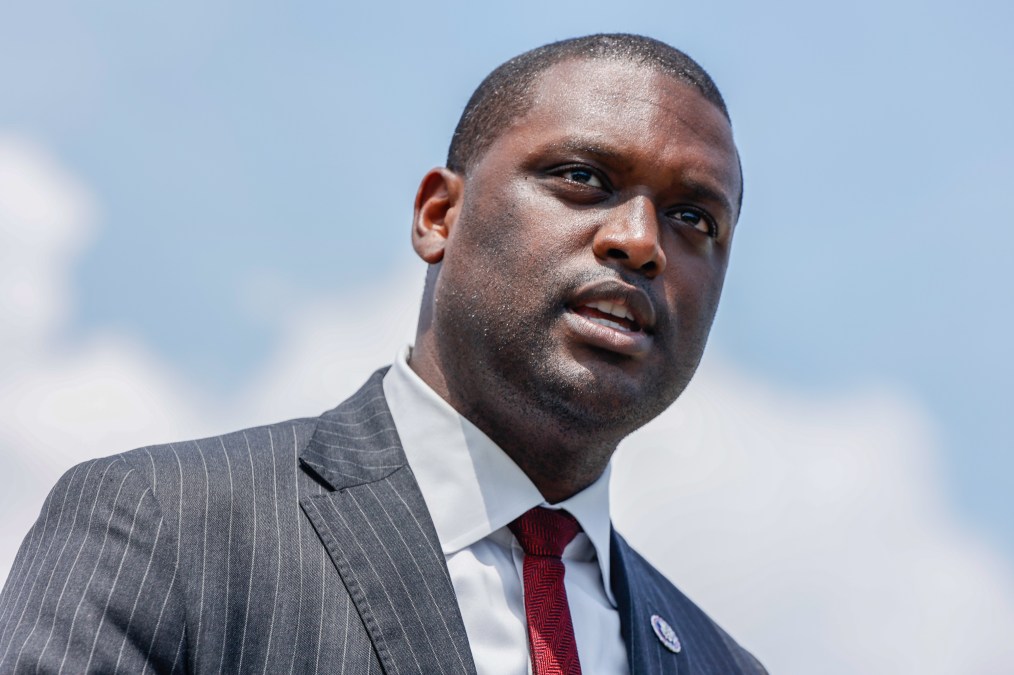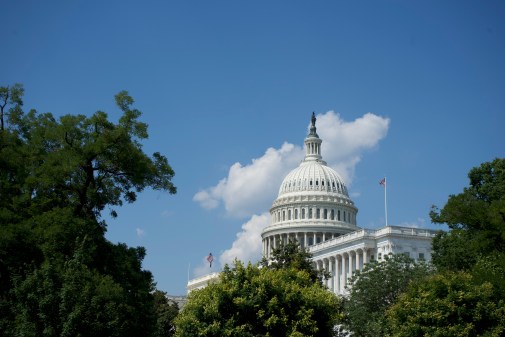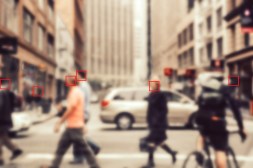Civil rights commissioner slams DOJ, HUD absence at facial recognition briefing

The Department of Justice and the Department of Housing and Urban Development allegedly declined to testify at a U.S. Commission on Civil Rights briefing on government use of facial recognition technology Friday, drawing the ire of panel members.
Mondaire Jones, a commissioner on the panel and former Democratic member of the U.S. House of Representatives, skewered both departments for declining the commission’s invitation to appear and not providing written testimony at the Friday briefing. Jones called their absence “offensive” and alleged the departments are “embarrassed by their failures and are seeking to avoid public accountability.”
“I have not seen anything like this from this administration,” Jones said. “And had the commission been given adequate notice of the failure of these departments to cooperate, I would have urged this commission to exercise its statutory authority to issue subpoenas, which is something that we have rarely had to do in the course of this commission’s existence.”
Commissioner J. Christian Adams, a Republican appointee, said that he shared Jones’ concern about the DOJ’s absence and would support efforts to obtain information from them “even if it extends to exercising subpoena power.”
In an emailed statement, a HUD spokesperson said the department “does not use any facial recognition technology and urges its program participants to find the right balance between addressing security concerns and respecting residents’ right to privacy.”
They added: “HUD is cooperating with the U.S. Commission on Civil Rights and provided answers to the Commission’s extensive interrogatories and document request in advance of the Commission’s briefing on facial recognition technology. HUD plans to submit written testimony and welcomes future opportunities to collaborate where appropriate.”
In an emailed statement, a spokesman for the DOJ told FedScoop the department is “in communication with the Commission about the Department’s response.”
Lack of testimony from the departments was particularly notable as the hearing set out to specifically focus on the civil rights implications of facial recognition technology use by the DOJ, HUD and the Department of Homeland Security.
Unlike the other departments, however, DHS did provide in-person testimony, which Jones praised as the department taking “its statutory obligations and the work of this commission seriously.”
Following Jones’ remarks, Adams underscored the impact of the DOJ’s absence, noting that DOJ’s Office of Legal Counsel and Civil Rights Division would be the “primary drivers of any federal policy related to facial recognition technology,” and DHS’s civil rights office is “effectively subservient” to whatever those offices say about this policy, he said.
“Not having them here takes away the central organizing component of the federal government to answer these questions, so I support you and your concern and whatever steps you think are appropriate going forward,” said Adams, who is the president and general counsel of the Public Interest Legal Foundation and a former DOJ Voting Section attorney.
The Friday hearing comes as use of facial recognition technology in the federal government has prompted concerns about privacy and civil liberties, including from lawmakers and academics. A Government Accountability Office report last year found that seven agencies using the technology had initially used the technology without requiring staff to take training and some agencies didn’t have policies addressing civil rights and civil liberties protections.
Just last month, the National AI Advisory Committee’s Law Enforcement Subcommittee sought to improve agency disclosures of such technologies in their AI use case inventories by approving proposed edits to clarify exclusions.
In opening remarks, Chair Rochelle Garza, a Democratic appointee, noted both the potential benefits of the technology and threats it poses to fundamental rights. She said the briefing marked the commission’s “first step towards investigating the breadth of the challenges that FRT may pose.”
The meeting featured testimony from representatives of the GAO, the White House, Clearview AI, subject matter experts, and federal and state law enforcement, and covered topics such as the capabilities and harms of facial recognition technology and guidance for federal oversight. In addition to the meeting, the commission is accepting public comments as it prepares its report until April 8.






